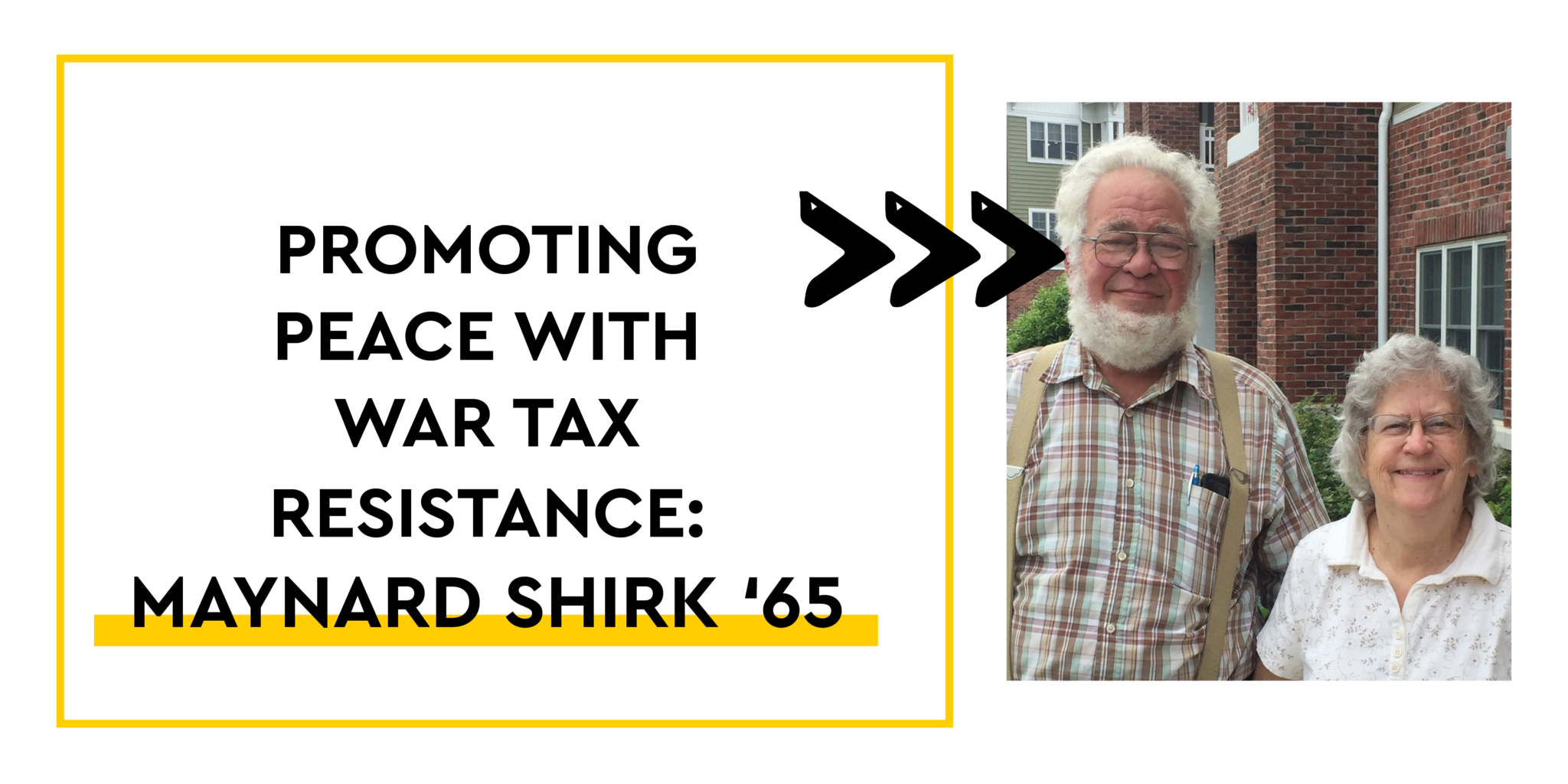Posted

MAYNARD SHIRK ‘65 would have preferred to quit public high school, but his mom encouraged him to finish. He agreed to complete High School at Lancaster Mennonite with friends from his home congregation, Alsace Mennonite Church.
After graduating from college at what was then Eastern Mennonite College (EMC), Maynard did a volunteer term with Eastern Board (EMM) in Vietnam during the Vietnam War. He had grown up in a farming community and was strong mechanically. Unbeknownst to him, he was recruited to serve as an English teacher in Vietnam. After arriving, “they saw the light and instead had me start fixing things, because teaching was not for me,” he shares.
“I grew up in an ethnically Mennonite setting and was around adults that were decidedly Anabaptist and firmly committed to a peace position. Vietnam had more influence on me than any other individual setting,” Maynard shared. While living and serving in Vietnam, “I traveled the country and never really feared for my life, because I was not in a war area with bullets flying, as many other Mennonites serving in Vietnam were at that time.”
One day, Maynard and a few fellow volunteers went to see the Demilitarized Zone (DMZ) outside one of the refugee camps. The DMZ was a three-mile wide area with a wooden outpost where Americans could view if people were crossing the border. “We went up a 25 foot tower and a soldier working there showed us their telescope and radar measuring device that could pinpoint locations by the square meter. He telephoned the coordinates to a fire base 15 miles away, then we heard the artillery fire overtop of our heads, saw it land, and then it blew up the area the soldier had pinpointed. At that point I realized, President Nixon didn’t want to see soldiers dying or need warm bodies; they needed money to build fancy high tech machinery for the war.”
As a way to promote peace and protest violence, Maynard has participated in a War Tax Resistance, which means withholding a portion of his taxes that the government spends on military as a conscientious objection to the use of tax for military purposes.
He shares, “We need to be more deliberate about teaching the peace position. Yes, it’s supporting no violence in wars, but it’s also how you live every day – how you treat children, your spouse, and employees.”
